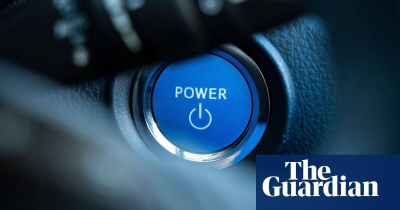The Guardian-CATL the little-known Chinese battery maker that has the US worried
March 18, 2024 5 min 976 words
CATL作为全球最大的电池制造商,其中国籍拥有引起了美国对其科技主导地位的担忧。报道指出,CATL的电动汽车技术领先于美国,为特斯拉、大众和宝马等品牌提供动力。然而,美国政府近期开始对CATL展开调查,企图减少对中国电池的依赖。这一举动既表明了美中之间的经济竞争,也凸显了美国在电动汽车领域的技术落后。报道指出,美国面临着摆脱中国电池依赖的挑战,但在短期内难以找到替代方案。这一局面表明了美国在能源转型和技术发展方面的紧迫性,需要更加努力来保持竞争力。
The world’s two superpowers are so intricately linked that it’s hard to think of a pillar of the economy that hasn’t been strained by tensions between the US and China.
And the next frontline in the economic conflict may be the most fundamental yet: a fight for power itself.
A Chinese company that most people have never heard of is at the heart of the global race to store the clean energy needed to power the green transition in the US and the rest of the world.
China’s Contemporary Amperex Technology Co Limited, or CATL, is an energy storage specialist that is the world’s largest battery maker for electric vehicles (EVs). But despite the fact that the company controls nearly two-fifths of the world’s EV battery market – and has powered cars made by brands including Tesla, Volkswagen and BMW – it has long flown under the radar of US politics. Until now.
In February, Duke Energy, a US energy company that serves more than 8 million customers, said it was phasing out the use of CATL batteries. Duke said it would replace the CATL products with technology from a “domestic or allied nation supplier”.
The decision came after lawmakers had raised concerns about the use of CATL batteries at a Marine Corps base, Camp Lejeune, in North Carolina. Duke, which provides electrical infrastructure to the military base, disconnected the CATL batteries in December and now plans to decommission them entirely, as well as phase them out from civilian projects.
Ford has also come under fire for doing business with CATL. A deal between the two companies to build a factory in Michigan to produce low-cost lithium iron phosphate batteries for EVs using CATL technology has repeatedly been questioned by US lawmakers. Marco Rubio, the vice-chairperson of the Senate intelligence committee, said the plan would bring “America’s greatest geopolitical adversary into the heartland” . In November, Ford scaled down its plans for the plant, reducing its capacity by about 40%.
“This is new,” says Tu Le, the founder of Sino Auto Insights, a consultancy, of the recent scrutiny on CATL. “This is not something that had been talked about or discussed by the US government. There were never any concerns before.”
US is ‘years behind’
Le says there is an increasing pressure on US companies not to use any Chinese batteries, “but if the US is going to be competitive on the global stage with EVs, through 2030 they’re going to have to use Chinese batteries”.
Critics are worried that using CATL batteries may create a dependence on Chinese technology that could become a vulnerability in the event of souring relations between Washington and Beijing. There are also concerns that US tax subsidies for green technology could flow towards Chinese entities.
Regardless, experts agree there is no clear roadmap for the US to decarbonise its streets without cheap Chinese EV batteries – most likely from CATL or its main rival, BYD.
Michael Dunne, the founder of Dunne Insights, an EV consultancy, says the US is “years behind when it comes to batteries, battery supply chains, critical minerals. This is where our cupboard is bare.”
Dunne says there is now a “sense of urgency” in the US to build up domestic battery capacity but that it would take between five and 10 years to catch up with China. That may not be fast – or cheap – enough to achieve Biden’s goal of two-thirds of new car sales being EVs by 2032.
Last week, energy secretary Jennifer Granholm told a discussion panel: “We are very concerned about China bigfooting our industry in the United States even as we’re building up now this incredible backbone of manufacturing.”
But Granholm also acknowledged that “we need to understand that it is important for people to buy electric vehicles in an affordable fashion,” something that experts say is impossible in the current market without Chinese batteries.
A highly charged political climate
The pushback in the US is already having an impact. Research recently published by Rhodium Group concluded that “Chinese EV and battery companies are increasingly stuck between a rock and a hard place” as they try to navigate their rising unpopularity in the US while Beijing pushes them to internationalise. Between 2022 and 2023, Chinese overseas investment in the EV supply chain in north America decreased from $4.8bn to $2.7bn, according to Rhodium, “driven by regulatory uncertainty and fears over political backlash”.
Le says: “The national security aspect of it needs to be examined. That’s part of due diligence. But we also know that we don’t want to cut our nose off to spite our face either.”
CATL declined to be interviewed, but referred the Guardian to a statement published in December: “Accusations about CATL batteries posing security threats are false and misleading. As a global technology company, CATL welcomes responsible discourse on important safety and security issues, and we take questions about our business seriously. CATL’s business and products in the US do not collect, sell, or share data, and cannot directly interact with electrical grid or any other critical infrastructure.”
Le says many Chinese companies are “anxious” to see who the US will elect as their next president in November. But although Washington is unlikely to look favourably on firms such as CATL any time soon, US companies may struggle to find alternatives. Tesla is reportedly planning to open a new battery factory using CATL machinery in Nevada this year.

